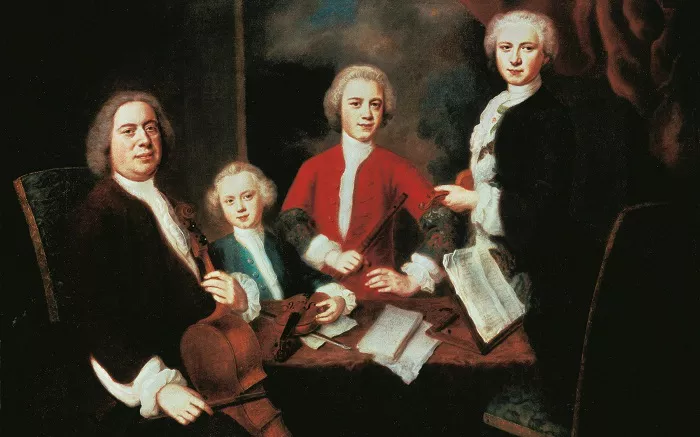In the vast realm of music, classical compositions hold a revered position for their timeless beauty, intricate melodies, and profound emotional depth. Within this genre lies a subset that captivates listeners with its intensity, complexity, and raw power: heavy classical music. This article delves into the essence of heavy classical music, its origins, characteristics, notable composers, and its enduring appeal to audiences around the world.
Defining Heavy Classical Music
Heavy classical music, also known as “symphonic metal” or “epic orchestral music,” is a fusion genre that merges the grandeur of classical orchestration with elements of heavy metal, rock, or electronic music. Unlike traditional classical compositions, heavy classical music often incorporates distorted guitars, pounding percussion, and symphonic arrangements to create a dynamic and immersive sonic experience.
Origins and Evolution
The roots of heavy classical music can be traced back to the late 20th century when pioneering artists began experimenting with blending classical instrumentation with rock and metal influences. Bands like Metallica, Deep Purple, and Led Zeppelin incorporated orchestral elements into their music, laying the groundwork for the genre to flourish.
One of the earliest examples of heavy classical music can be found in the works of composers such as Richard Wagner and Gustav Holst. Wagner’s operas, renowned for their grandiosity and orchestral complexity, inspired later generations of musicians to explore the fusion of classical and rock music. Holst’s orchestral suite “The Planets” showcased the power of symphonic arrangements in evoking cosmic landscapes and dramatic narratives, influencing the development of heavy classical music.
In the 21st century, heavy classical music gained widespread popularity thanks to the advent of digital technology and the internet, which enabled composers and musicians to produce and distribute their music to a global audience with ease. Online platforms like YouTube and Spotify provided a platform for artists to share their compositions, attracting fans who were drawn to the genre’s epic soundscapes and emotional depth.
Characteristics of Heavy Classical Music
Heavy classical music is characterized by its fusion of classical orchestration with elements of heavy metal, rock, or electronic music. Key features of the genre include:
Orchestral Arrangements: Heavy classical compositions often feature elaborate orchestral arrangements, with a full complement of strings, brass, woodwinds, and percussion instruments. The use of symphonic instrumentation adds richness and depth to the music, creating a sense of grandeur and scale.
Guitar Riffs and Solos: Unlike traditional classical music, heavy classical compositions frequently incorporate electric guitars, with musicians often employing distorted tones, power chords, and virtuosic solos reminiscent of rock and metal genres. The juxtaposition of electric guitars with orchestral elements adds a modern edge to the music, enhancing its intensity and energy.
Epic Themes and Narratives: Heavy classical music often explores epic themes and narratives, drawing inspiration from mythology, literature, and historical events. Composers use music to convey a sense of drama, adventure, and emotion, immersing listeners in fantastical worlds and larger-than-life stories.
Dynamic Contrast: Heavy classical compositions frequently employ dynamic contrast, alternating between quiet, contemplative passages and loud, bombastic crescendos. This interplay of light and shade adds tension and drama to the music, heightening its emotional impact and creating a sense of urgency and excitement.
Symphonic Metal Fusion: Some heavy classical music incorporates elements of symphonic metal, a subgenre of heavy metal that emphasizes symphonic orchestration alongside traditional metal instrumentation. Symphonic metal bands like Nightwish, Epica, and Within Temptation combine operatic vocals, symphonic arrangements, and metal instrumentation to create a unique fusion of genres.
Notable Composers and Works
Several composers have made significant contributions to the genre of heavy classical music, pushing the boundaries of orchestral composition and experimentation. Some notable figures include:
Thomas Bergersen: A prolific composer and co-founder of the music production company Two Steps From Hell, Bergersen is renowned for his epic orchestral compositions featured in film trailers, video games, and television shows. His works, such as “Heart of Courage” and “Protectors of the Earth,” showcase his mastery of symphonic arrangement and emotional storytelling.
Hans Zimmer: One of the most influential film composers of our time, Zimmer has created iconic scores for blockbuster movies such as “Gladiator,” “The Dark Knight,” and “Inception.” His use of orchestral instrumentation, electronic elements, and innovative sound design has earned him critical acclaim and a devoted fan base.
Immediate Music: Founded by composers Jeffrey Fayman and Yoav Goren, Immediate Music specializes in producing epic orchestral music for film trailers, television commercials, and video games. Their compositions, including “Serenata Immortale” and “Liberators,” are characterized by their cinematic scope, dramatic intensity, and dynamic arrangements.
Epica: A Dutch symphonic metal band formed in 2002, Epica is known for its grandiose soundscapes, operatic vocals, and complex song structures. Led by vocalist Simone Simons and guitarist Mark Jansen, the band has released several acclaimed albums, including “The Phantom Agony,” “Design Your Universe,” and “The Holographic Principle.”
The Enduring Appeal of Heavy Classical Music
Despite its niche appeal, heavy classical music continues to attract a dedicated following of listeners who are drawn to its epic soundscapes, emotional depth, and immersive storytelling. The genre’s ability to blend classical sophistication with modern sensibilities appeals to fans of both classical and rock music, transcending traditional boundaries and forging new sonic territories.
Moreover, heavy classical music has found a home in various multimedia platforms, including film, television, video games, and online streaming services. Its dramatic and cinematic qualities make it well-suited for enhancing visual storytelling, evoking emotions, and creating memorable experiences for audiences.
Conclusion
In conclusion, heavy classical music represents a fusion of classical orchestration with elements of heavy metal, rock, or electronic music, resulting in a genre that is both powerful and emotionally resonant. With its epic themes, dynamic arrangements, and virtuosic performances, heavy classical music continues to captivate listeners and push the boundaries of orchestral composition in the 21st century and beyond.

